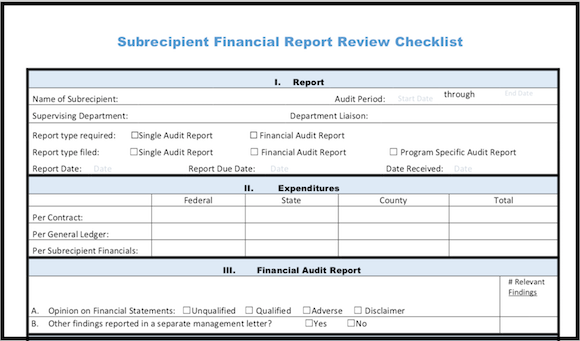|
Governments generally provide full reimbursement to employees for travel and other expenses that benefits the governmental entity. The Government Finance Officers Association (GFOA) recommends that all governmental entities that expect to have such travel, have a comprehensive employee reimbursement policy. Such a policy will help ensure that expenses incurred by employees are a reasonable and prudent use of public funds.
The GFOA provides an outline of topics governments should consider including in their travel reimbursement policy. (Click here to download the outline provided by the GFOA as a PDF-document.)
Following are several sample employee reimbursement policies of California cities and counties:
Common Problems with Processing Employee Expense Reimbursement
Processing employee expense reimbursements is time consuming for employees to fill out forms, and for the finance department to verify eligible costs are incurred, documented and approved. Following are four common problems with processing employee expense reimbursement:
1. Unclear employee expense guidelines and policies
If expense reimbursement procedures are confusing, not well-communicated, or forms are hard to obtain, it is more likely that employees make errors in reporting their expenses. 2. Employees submit incomplete or inaccurate travel expense forms Most governments ask employees to complete an employee reimbursement request form, which categorizes expenses by type (e.g., meals, airfare, taxi, conference registration). Typically, the finance department codes these expenses to general ledger categories. The reimbursement request form and its related completion instructions should clearly tell what expenses are reimbursable and what expenses are not, and clearly describe where on the form the employee is to report each type of expense. The sections of the form that are required to be completed by the requesting employee should be clearly identified. Click here to download a Sample Travel Expense Form in Excel-format, that your agency can use and modify for their needs. 3. Slow Employee Reimbursement The time it takes for employees to get their expense reimbursements approved (and their money back) or rejected will affect the system’s usefulness and employees’ willingness to report expenses properly and timely. 4. Expense Reimbursement Fraud No organization is exempt from the risk of employee expense reimbursement fraud, but government and public administration sectors, as well as banking and financial services, are especially at risk, according to a report by the Association of Certified Fraud Examiners. Commonly committed employee expense frauds include:
In order to minimize the risk of employee expense fraud, it’s important to have adequate internal controls and procedures in place.
Important Internal Controls to Incorporate Are:
For more specific questions related to employee expense reimbursement, please feel free to reach out to Kevin directly at:
Kevin Harper, CPA kharper@kevinharpercpa.com (510) 593-503
If you'd like to get more free tips, as well as downloadable tools and templates for your agency, please join our mailing list here!
(We’ll send you a monthly curated selection of our blog posts. You can unsubscribe at any time.) |
The Government Finance and Accounting BlogYour source for government finance insights, resources, and tools.
SEARCH BLOG:
Meet the AuthorKevin W. Harper is a certified public accountant in California. He has decades of audit and consulting experience, entirely in service to local governments. He is committed to helping government entities improve their internal operations and controls. List of free Tools & Resources
Click here to see our full list of resources (templates, checklists, Excel tools & more) – free for your agency to use. Blog Categories
All
Need a Consultation?Stay in Touch! |
Search Across Entire Site:
HELPFUL LINKS:
|
461 2nd Street, #302
San Francisco, CA 94107 (510) 593-5037 KHarper@kevinharpercpa.com |




 RSS Feed
RSS Feed